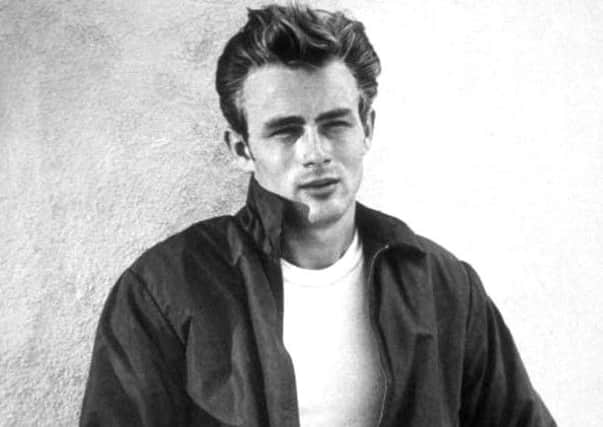Stay informed: Top 10 opinions of the week


Cameron Wyllie was moved to urge teachers not to be too down on pupils who displayed signs of being “cool”.
“What teachers need to accept is that there’s nothing wrong with being cool – it’s just something that happens, like being very funny or having good hair. We need to stop railing about ‘coolness’ like we rail about smoking or idleness (it may be that some cool kids smoke and some are lazy but it’s not a necessary part of the conidition). One school I know of went through such an ‘anti-cool campaign’ that it enlisted children to wear ‘Glad To Be Sad’ badges, which I personally felt to be going a bit far ... This kind of approach towards a particular kind of teenager only encourages all teenagers to exaggerate the gulf in attitudes between themselves and their teachers; heaven forfend, it may make them think that some of their teachers are a teeny bit jealous because they themselves were never cool, and never will be.”
Advertisement
Hide AdAdvertisement
Hide AdJoyce McMillan suggested Scotland might fair better under Brussels than London, because of the EU’s rules-based system and Westminster’s lack of understanding of devolution, as revealed in a report by a committee of MPs.
“Even outside the EU, nations like Norway and Switzerland have found ways to flourish by forming semi-detached relationships with the EU through EFTA and the European Economic Area; hard Brexiteers call this being a ‘vassal state’, but somehow, at this moment, Norway seems much less of a vassal than poor Scotland, being dragged unwillingly out of all three organisations,” she argued.
“Rights and sovereignty are not the same thing as raw power, of course, and never can be. Yet for nations of 10 million people or fewer, the best chance of surviving, thriving and enjoying real security lies in membership of a properly constituted association of countries which, at the deepest constitutional level, fully recognises their existence as distinct political communities, and their right to continue to exist.”
Darren McGarvey disputed the idea that controversial academic Jordan Peterson was a member of the alt-right, although he has supporters among them.
“Peterson emerges from the same rudderless liberalism that not only tolerates Nigel Farage, but also promotes him. A liberalism that practically catapulted Trump into the White House by, on one hand, giving him more airtime than anyone else (because it was lucrative) while, on the other, failing to understand the quantum mechanics of the socially corrosive anger and resentment that define the current political moment. A moment in which too many find themselves so aggrieved at the status quo, they’re willing to risk democracy itself just to land a blow on the ‘system’ they believe is rigged against them.”
Ayesha Hazarika warned the MeToo movement is being turned on its head by a male-dominated media, which keeps setting up verbal spats between feminists.
“Instead of women coming together to fight the patriarchy, it now looks like we came together to fight each other. I was hoping it would be like Made in Dagenham, sadly it seems to have gone a bit Prisoner Cell Block H. Whenever you turn on the television or radio or look at social media, women are always having a go at each other about feminism, which is what I explore in my show Girl on Girl. Whether it’s the gender pay gap or women on boards or up-skirting, the media (which is largely still run by white chaps) loves nothing more than seeing women taking lumps out of each other and shrieking – it’s like porn for the patriarchy, plus it keeps us women in our place and preserves the status quo. I have had some horrendous experiences after being made to debate women which feel more like a freak show or a dog (bitch) fight, than a considered discussion about important issues,” she wrote.
Brian Monteith dismissed the latest round of warnings about the dangers of a no-deal Brexit, saying they were typical “silly season” media stories.
Advertisement
Hide AdAdvertisement
Hide Ad“Scaremongering makes good headlines and during the [EU] referendum there was a never-ending torrent of reports designed to ensure we put our cross at the box marked ‘Remain’. Just as such negativity failed to stop the Yes campaign managing 45 per cent of votes in the independence referendum, so the often outrageous negativity of George Osborne, David Cameron, Barack Obama, John Major, Tony Blair and other usual suspects did not stop the country voting to leave the EU. Indeed, there appears to come a point when warnings of biblical proportions only harden voters to believe that those defending the status quo doth scare too much and cannot be true for they are just so plainly absurd,” he wrote.
Somewhat bleakly, he added: “By their nature referendums are highly divisive and this means that, just as in a civil war, all moral scruples and restraints are lost.”
Bill Jamieson also tackled the repeated warnings of Brexit doom, particularly the idea of stockpiling food. “An autumn dominated by stories like this would be the perfect breeding ground for panic stocking by consumers. The hope among supporters of the Chequers deal is that, even if this is further diluted by demands from the European Commission, MPs and the public will fall reluctantly in line. ‘Brexit means Brexit’ will come to mean something quite different from what voters imagined. And how might that go down? Many ‘Yes’ voters – the majority in the single biggest poll turn-out in UK history – will feel the Government has betrayed them,” he wrote.
“It is hard to envisage that Conservative voters would rally round Mrs May in the resulting storm. Voters, utterly fed up with Government dissemblage and fudge, would want shot of the whole Brexit mess. The least worst outcome, some believe, would be a retreat into political disillusion and apathy. But that would leave the UK parliament at the mercy of extremists of the far right or left.”
Lesley Riddoch noted the the high cost of bed-and-breakfast in Scotland was prompting some people to go wild camping or take day trips rather than longer holidays.
But she said: “It doesn’t have to be like this.”
“Across northern Europe and the world’s wooded latitudes, wooden weekend huts have traditionally come to the rescue, removing locals from the commercial holiday market and offering the possibility of long, leisurely stays during the summer, extended family reunions at Easter and sanity-restoring breaks every weekend throughout the year”, she wrote.
“Norway has the world’s highest GDP and the highest rate of hut ownership, with one basic wooden hut for every ten Norwegians. In 2006, there were 429,093 holiday homes in Norway, of which the vast majority (398,884) were huts rather than converted farmhouses (30,209) in a population of 4.6 million.
“Few huts have running water (thanks to freezing winters) although some have electricity and most are custom-built with wood-burning stoves. They are close enough to reach every weekend (usually within 25 miles and one hour’s drive) and the hytte habit is a marker of wealth, not poverty. Norway is one of the world’s most equal societies, and since second homes are generally modest purpose-built huts, not family homes from the local housing stock, ownership isn’t regarded as elitist, greedy or wasteful.”
Advertisement
Hide AdAdvertisement
Hide AdJohn McLellan, a former prop forward, did not hold back as he tackled the Scottish Rugby Union’s decision to “evict” Murrayfield Wanderers from their ground next to the national stadium, despite it being their home for 100 years.
“A 25-year lease was agreed with the SRU ... but the understanding was that the lease was a technicality as there was never any chance of the arrangement ending. But those were gentler times, everyone involved in Scottish rugby believed the interests of the clubs and the union were one and the same and the governing body would never turn on one of its own. But those SRU men are now dead, and ten years ago the club was told the lease would not be renewed because the amateur club was not compatible with future needs. Relations deteriorated until last year when a terse communication from the Union (which I’ve seen) confirmed the plug would be pulled this August.
“The SRU has done nothing illegal and argues the club was given ample notice to plan for the future away from Murrayfield, and it’s hard to avoid the conclusion that Wanderers were naïve to think a gentleman’s agreement guaranteed a secure future.”
After Kenny MacAskill’s attack on Jeremy Corbyn’s Brexit speech, Brian Wilson came to the Labour leader’s defence, saying it had been a “sensible speech about industrial policy”.
“His theme was that far too much ground has been yielded to the mantra that our economic future lies in service industries, particularly financial, and that it is time (or long past time) to use of the power of the state to defend what’s left of UK manufacturing,” he wrote.
“Corbyn argued that vast sums of public money are spent on procurement outside the UK, on the basis of cost, when much of it could nurture business, enterprise and jobs in the UK. He gave defence contracts, railway rolling-stock and – inevitably – passports as obvious examples.
“There is nothing new about ‘Make it in Britain’ campaigns and nor will there be anything new about the challenges of implementation. What struck me as extraordinary was the arrogance of the response which Corbyn encountered, particularly from the pro-EU commentariat.”
Alastair Dalton called for the authorities to create think creatively to help improve the lot of pedestrians on busy pavements, after deciding the idea of a “fast lane” was impractical.
Advertisement
Hide AdAdvertisement
Hide Ad“Far better to introduce ‘no stopping zones’ where the bottlenecks are worst. Well-positioned signs with sufficiently scary wording should do the trick - because those who spot them will jolly along the rest,” he wrote.
